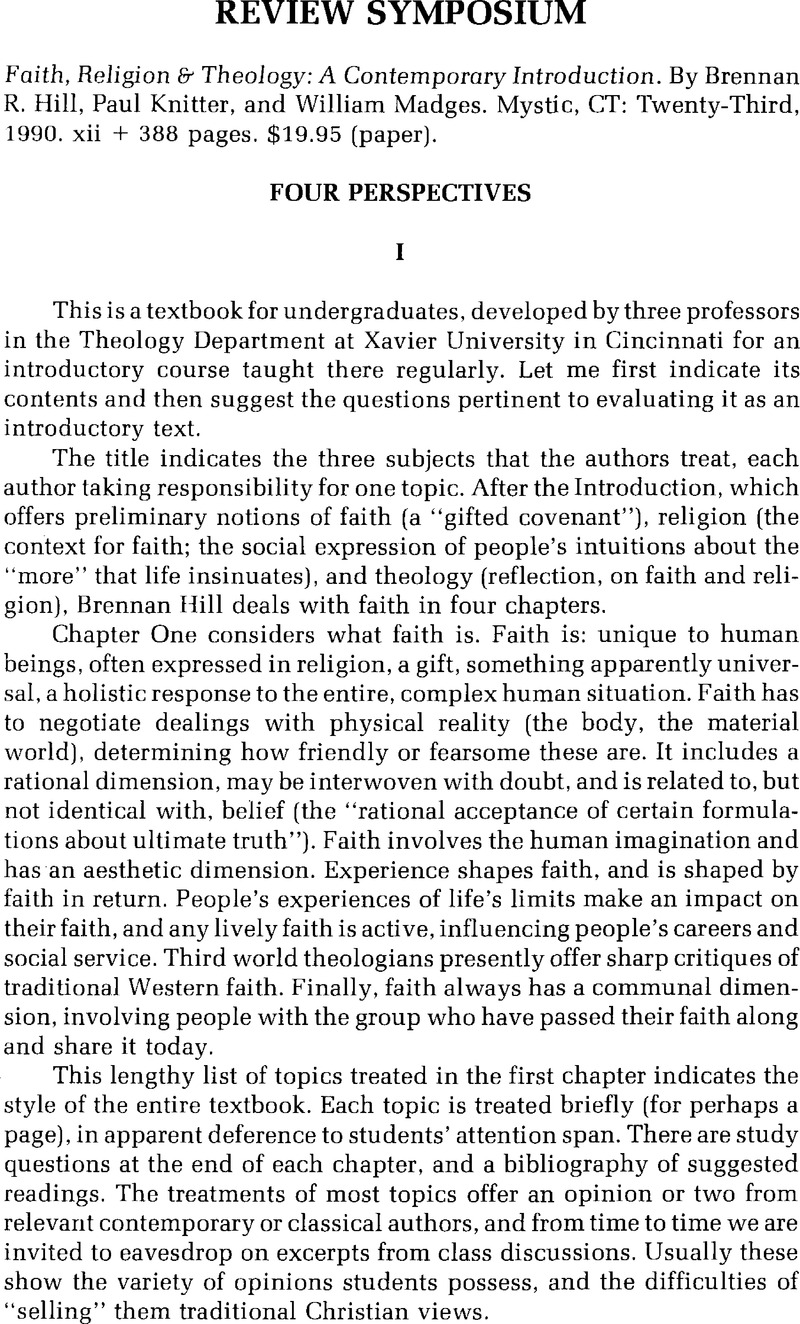Article contents
Faith, Religion & Theology: A Contemporary Introduction. Author's Response
Published online by Cambridge University Press: 09 September 2014
Abstract

- Type
- Review Symposium
- Information
- Copyright
- Copyright © The College Theology Society 1990
References
1 Taylor, Mark Kline, Remembering Esperanza: A Cultural-Political Theology for North American Praxis (Maryknoll, NY: Orbis, 1990), chap. 1.Google Scholar
2 U. S. Catholic Conference, Catholic Higher Education and the Pastoral Mission of the Church (Washington, DC: 1981), 5.Google Scholar
3 Schneiders, Sandra M., “Spirituality in the Academy,” Theological Studies 50 (1989): 692.CrossRefGoogle Scholar
4 Note the difference of Walter Principe's position on this point from Schneiders' and, presumably, Cunningham's. Principe points out that a theological approach to spiritual experiences involves assessment according to theological principles, whereas a religious studies approach to such experiences is content with a descriptive analysis (Principe, Walter, “Toward Defining Spirituality,” Studies in Religion 12 [1983]: 139–40CrossRefGoogle Scholar).
5 Schneiders, 679.
6 Schneiders, 684, defines spirituality as “the experience of consciously striving to integrate one's life in terms not of isolation and self-absorption but of self-transcendence toward the ultimate value on perceives.' And Principe, 139, says that spirituality “points to those aspects of a person's living a faith or commitment that concern his or her striving to attain the highest ideal or goal.”
- 1
- Cited by




